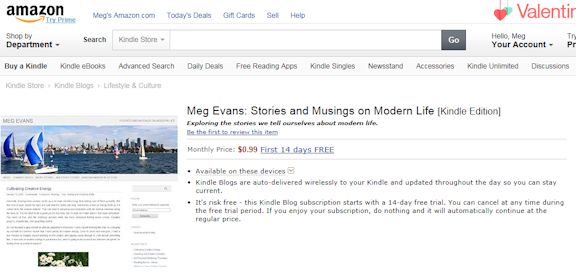It’s in the air. We can taste it on every breath—all that restless energy flowing through the culture, dancing wildly into the future, calling us to expand into infinite possibilities and create all the beautiful things in our minds that are just waiting for us to make them real. Life is supposed to be joyful, it tells us. There is so much more we can create and become. We only have to imagine it.
So we meditate, we visualize, we say affirmations, and we believe it’s within our grasp. We try to harness that wonderful creative energy to run before us like the chariot horses of the Roman arena, hooves pounding in a glorious cloud of dust as the finish line nears. We read self-help books that encourage us to follow our passions, whatever they may be, and trust that the Universe will reward our devotion—by sending a big fat bank account our way.
And I’m left wondering just how the passionate desire to create beautiful things got tangled up in our minds with Wall Street-style greed. Why are we so tempted to visualize ourselves quitting our jobs and effortlessly raking in a gazillion dollars from the books we haven’t written yet, the songs we haven’t composed yet, or the movies we haven’t produced yet? Why does everything have to be monetized on a grand scale? Seriously, are those sparkling joyful surges of creative energy telling us to grab the most toys? What’s going on here?
In general, whenever a narrative spreads so widely through the culture, it reflects something that already exists in present-day reality. I don’t mean to say that we’re all ruled by greed, but that we live in a time of vastly expanding possibilities. Modern technologies and cultural changes have empowered us to pursue careers we couldn’t have imagined in the past. So naturally we’re not willing to resign ourselves to a lifetime of soul-numbing drudgery just because people once thought there was nothing better. That, I believe, is what’s at the root of the “financial freedom” narrative—it’s not so much about old-fashioned greed, but about seizing those shiny new potential-filled moments and making the most of them. Money represents possibility.
And that’s all very well in itself; but the downside of equating money with possibility is that when the gazillion dollars never actually show up, it can feel like a personal failure, rather than simply reflecting the fact of a sputtering global economy that still needs time to expand. All that amazing creative energy takes a backseat to obsessively visualizing the big fat bank account and wondering what went wrong.
There is also a subtler trap, which is that we have been culturally conditioned to use the word “dream” to describe doing what we enjoy on a regular basis. That language puts it into the realm of distant fantasy, rather than within reach in everyday life. As a result, we can’t just be happy writing a blog or a novel or whatever because that’s what the creative energy calls us to do in this moment—no, that’s not good enough, we’ve got to have the glittering fantasy of being a super-wealthy celebrity. Otherwise, the culture might always dismiss our efforts as insignificant and leave us stuck forever in a dismal wage-slave existence.
Of course, we don’t really need that big fat bank account before we can take control of our lives. Nor is there any requirement to be a glitzy celebrity before anyone appreciates our creative projects. In fact, there are many celebrities and rich people who are notorious for their totally messed-up lives and always get laughed at in the tabloids. So if wealth and fame aren’t really where control, possibility, and respect come from—then how do we go about getting them?
Simply put, it’s all in the details. Not so much in those bright gleaming visualized details of future grand accomplishments, but in the words and images we use to frame our everyday acts—the details in present tense. I don’t, for example, dream of being a writer. I write stories. Fact. I write a blog. Fact. I control what I write and what I publish. Fact. These aren’t dreams—they are options I have chosen from among the many possibilities open to me in the here and now.
And though I can’t control what other people think of my writing, I have a fairly good idea of how to find readers who appreciate my work. First of all, I need to be consistently kind and courteous, showing others the same respect I’d like to get from them. It’s also important to take the time to put together quality work, free of careless errors. I need to be open to learning from constructive criticism and improving myself and my writing. And last but not least, I just need to get into the flow, relax, and have fun! If I became rich and famous, I still would need to do these things to earn genuine respect. There are no shortcuts to be bought.
I set up my blog on Kindle two weeks ago—not because I had any expectation of making money from it, but just because it seemed like a fun thing to do, as well as a convenience for any readers who might prefer following blogs on Kindle. Here’s a partial screenshot of my page on Amazon, which itself has a screenshot of my blog. I decided to put it into this post because the recursive effect looks cool.

So far nobody has subscribed to it, but that’s okay because it is just a fun present-tense detail of the intentional life I’m in the process of creating. If I had been seriously planning to monetize my blog, I probably would’ve felt disappointed about not becoming an overnight gazillionaire. And we all know what we attract when we feel disappointed and unsuccessful—yup, more of the same. Simply enjoying the small details may not be as glamorous as the rich celebrity fantasy, but I believe it works out better as time goes by and more of those details fall into place.






